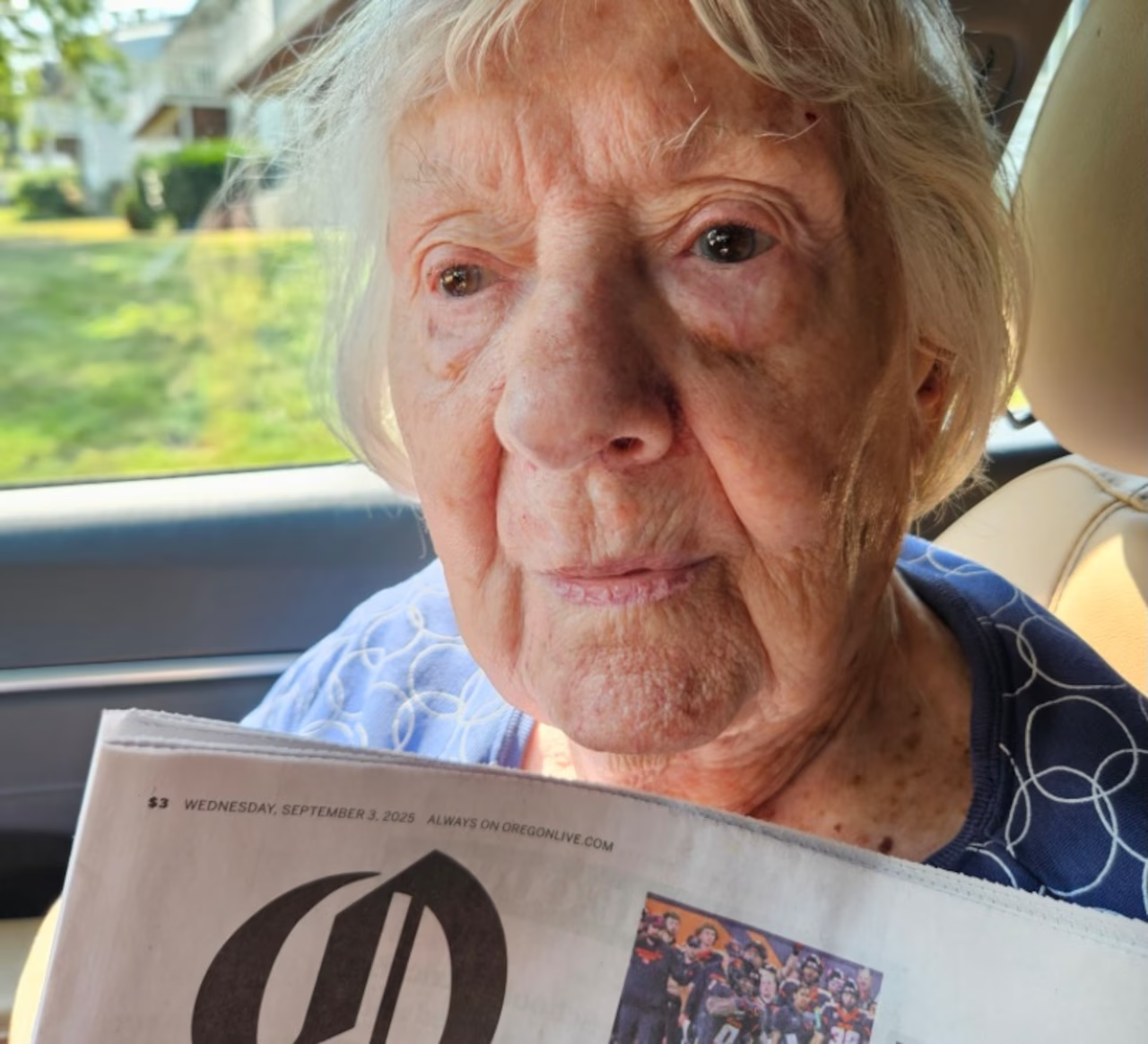PORTLAND, Ore. — When Margaret Swoboda marked her 100th birthday this past April, she chose a quiet celebration with close family at a neighborhood restaurant, wary of hosting a larger gathering during the ongoing risks of COVID-19.
But just a few months later, the federal government sent her a very different kind of recognition: a letter questioning whether she was even alive.
A Startling Letter
Swoboda, who still lives independently in Northeast Portland, received a notice from federal officials demanding proof that she was not deceased. If she failed to respond, her pension benefits would be cut off.
Also Read
“I couldn’t believe it,” she said. “I’ve made it a whole century, and now I have to prove I’m not dead?”
The demand was part of a routine federal process meant to verify beneficiaries’ status, but to Swoboda and her family, the timing felt particularly harsh — arriving right after her milestone birthday.
Family Outrage
Her relatives say the letter created unnecessary stress for someone who should have been celebrating her longevity, not justifying it to bureaucrats.
“She’s alert, healthy, and living her life,” her granddaughter said. “To receive something like this, basically saying, ‘We don’t believe you’re alive unless you prove it,’ was insulting.”
For a century-old woman who still enjoys outings and family time, the experience underscored the sometimes impersonal nature of government systems.
Pension Verification Practices
The Social Security Administration and related federal agencies periodically review records to ensure that benefits are not being paid out to deceased individuals. Errors can occur when databases incorrectly mark someone as dead, leading to sudden benefit stoppages or warning letters like the one Swoboda received.
While these systems are designed to prevent fraud, they often create frustration for elderly recipients and their families who must scramble to provide documentation.
Margaret’s Perspective
Despite the inconvenience, Swoboda responded with humor and resilience.
“I’ve lived through a lot — the Great Depression, wars, and even a pandemic,” she said. “This is just one more thing to get through.”
Still, she hopes her story draws attention to the need for more compassionate systems, especially for the elderly. “When you make it to 100, the least they can do is send you a cake, not a letter saying you’re dead,” she joked.
A Century of Life, Not Paperwork
Swoboda’s life has been marked by resilience and family bonds. Reaching a century was supposed to be a joyful milestone, and despite the federal government’s misstep, her family continues to celebrate her vitality.
“She’s not just alive — she’s thriving,” her granddaughter said. “We want her story to be about living to 100, not about red tape.”
For Margaret Swoboda, the message to the government is simple: “I’m not dead yet.”












